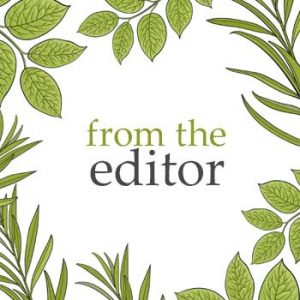
More evidence that low-calorie sweeteners are bad for your health
Studies show that artificial sweeteners can raise the risk of hypertension, metabolic syndrome, type 2 diabetes and heart disease, including stroke.

I don’t know about you but sometimes the sheer volume of ‘stuff’ I have to deal with leaves me feeling exhausted – and paralysed.
When I say ‘stuff’ I mean the usual duties linked to house, family and home, but also the other stuff that I know I need to pay attention to: the media stuff, the social and cultural stuff, the health and environmental stuff that inform my day-to-day work.
It’s like those TV shows about compulsive hoarders; there comes a point when the amount of stuff you need to address is so big you just stop trying to address it at all.
Our media exaggerates the problem with its doom-mongering and its habit of framing every story as an ‘emergency’, a ‘disaster’, a catastrophe’ or a ‘threat’. If everything that happens falls into these categories, how do we even begin to sort out a hierarchy of what needs to be responded to now, and what can safely be put aside until tomorrow?
It’s true that we live in a time of unprecedented and accelerated change, and that change is something we are all wary of – unless it is the superficial change of a new car, or a new haircut, or a new phone. And yet change in the way we approach everything – health, environment, consumerism, politics – is desperately needed.
The longer we postpone or deny the kind of systemic change needed to create a fairer, healthier world, the bigger and more overwhelming the task gets.
I have written a lot about this and the state of denial that paralyses so many of us, so I have been interested to see studies coming out recently that look at the issue of how the emotions and psyche influence how we act (or don’t).
A recent study, for example, looked at why people who are stressed make bad food choices. It’s because when we are stressed we just want relief, quickly. Stress makes us forget about the future and seek short-term comfort. I suspect that would hold true for issues beyond food. A stressed populace is one that simply can’t focus on the bigger picture or the longer-term. Which is why we take quick-fix drugs, or vote for pandering politicians.
Another recent study found that people who feel powerless actually see the world differently, and find simple tasks to be more physically challenging than those with a greater sense of personal and social power.
This emotional and psychological sense of powerlessness manifested in a physically interesting way: the more personally and socially powerless a person felt, the heavier objects appeared to weigh.
In another recent European study scientists found that merely perceiving yourself as poor has a direct effect on your health.
Those who believed they were poor – whether this was objectively true or not – got sick 38% more often, suffered 48% more health setbacks and were up to 40% more likely to die earlier than those who did not.
Poverty, related to income and wealth, has long been used to assess people’s risk of illness. But, the researchers say, this is not enough; self-perception must now be figured into the equation.
While the study looked at older people, these mental gymnastics are true for us all: we become the stories that we tell ourselves.
If we think we are powerless (or ‘old’ or ‘fat’ or anything else negative), that is what we will be. So this week’s challenge – for myself and everyone else – is: change the narrative (or as our new weekly life coaching series suggests, Change Your Life).
One of the great things about being human is that we get to choose. We can choose health; we can choose to feel powerful; we can choose redemption. We can choose to turn off the TV, or not to buy or eat things that are bad for us or for the planet. We can choose better words to describe ourselves, our situation and our roles in the wider world.
Like the TV hoarders, sometimes we just have to grit our teeth and begin the task.
So…how will you re-write the narrative of your life?
Pat Thomas, Editor

Please subscribe me to your newsletter mailing list. I have read the
privacy statement